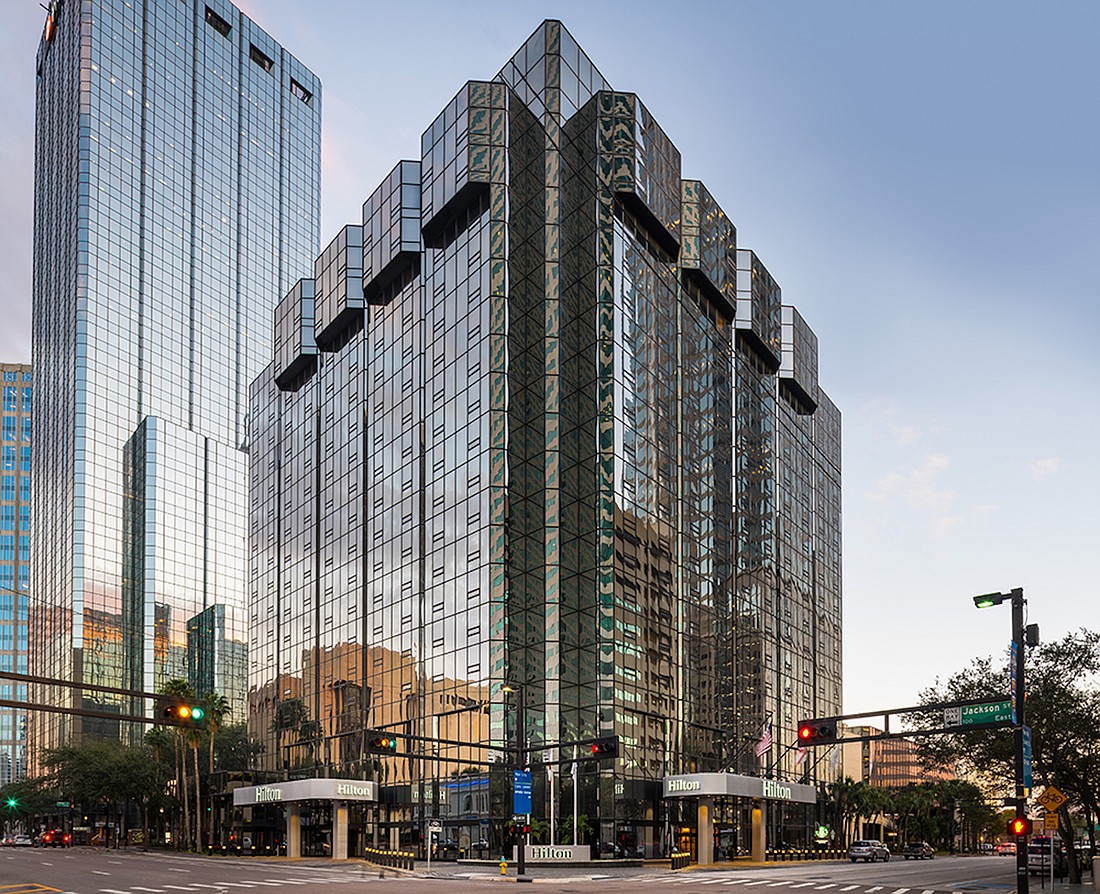- November 24, 2024
-
-
Loading

Loading

Energized by anticipated further gains in Tampa’s tourism and convention business and “robust cash flow,” Walton Street Capital LLC has acquired its second downtown Tampa hotel since 2016.
The Chicago-based company’s $116.85 million purchase of the 520-room Hilton Tampa Downtown comes nearly three years after it bought the now 309-room Westin Tampa Waterside hotel, according to Hillsborough County records.
“It’s a big investment, but they like Tampa and they tend to double down on markets they really like,” says Daniel Peek, a senior managing director of commercial real estate brokerage Holliday Fenoglio Fowler L.P. and head of its hotel group, of Walton Street.
Peek declined to provide the purchase price, citing an agreement with the buyer, and Walton Street officials declined to comment on the transaction.
“I think they’re particularly drawn to Southeast cities and late-growth areas, of which Tampa fits the bill,” adds Peek, who together with HFF’s Preston Reid and Wyatt Krapf negotiated on behalf of seller CrossHarbor Capital Partners LLC, of Boston.
“They view the economic profile of Tampa as very attractive.”
Completed in 1982 at 211 N. Tampa St., the 18-story hotel has benefitted from renewed interest in full-service hotels that cater to business travelers, conventioneers and tourists alike.
The hotel contains 30,000 square feet of meeting space, a trio of food and beverage outlets and amenities ranging from a 24-hour fitness center to and executive lounge.
The Hilton Tampa also has been buoyed by a more than $10 million dollar capital improvement campaign that began prior to CrossHarbor’s $101 million purchase in 2016 and was completed two years ago.
“Full-service hotels are very attractive today because the barriers to new supply are so very high,” Peek says. “The replacement costs for those types of hotels are very high, too.”
HFF also arranged for financing for Walton Street, a private equity firm founded in 1994 that has invested upwards of $12 billion since its creation.
Michael Weinberg, an HFF senior managing director, says placing the debt on the Hilton Tampa came amid a surge in interest by lenders.
“The debt market for well-located hotels with strong, qualified institutional buyers is very aggressive right now,” says Weinberg, who also led HFF’s financing efforts for CrossHarbor’s purchase in 2016.
“There was a lot of interest in this property from a lot of lenders,” Weinberg adds. “It’s a good time to be a borrower. And in this case, you had a well-established asset with robust cash flow and a sponsor that was putting tens of millions of dollars in equity into the deal. It all worked.”
Weinberg declined to reveal the lender, and loan documents have yet to be filed in conjunction with the transaction.
Both Peek and Weinberg say that while downtown Tampa is expected to receive new upscale hotel supply in the coming years — the $3 billion Water Street Tampa project is expected to deliver nearly 700 new keys in a 26-story JW Marriott Hotel and a five-star Marriott Edition by the end of 2021 — the new competition won’t tarnish the Hilton Tampa.
That’s because with more hotel rooms downtown, the city should be in a position to better attract more sizeable convention and meetings business, boosting occupancy and room rates for all the major downtown lodging assets in the process.
“The new properties will enhance the competitiveness of Tampa from a convention standpoint,” Peek says. “They will allow the market to compete for more, and larger conventions. So while it’s true that there is new supply in the offing, you have to remember that a lot of demand is going to be built at the same time.”
Much of that demand stems from the momentum Tampa has received in recent years from hosting national political conventions, major sporting events and from the groundswell of real estate development and business growth that swept the city.
“Tampa is in the top tier of discussions today by meeting planners who traditionally had looked elsewhere,” Peek says. “That’s what’s really driving the hotel sales activity and the interest among major institutional investors like Walton Street.”